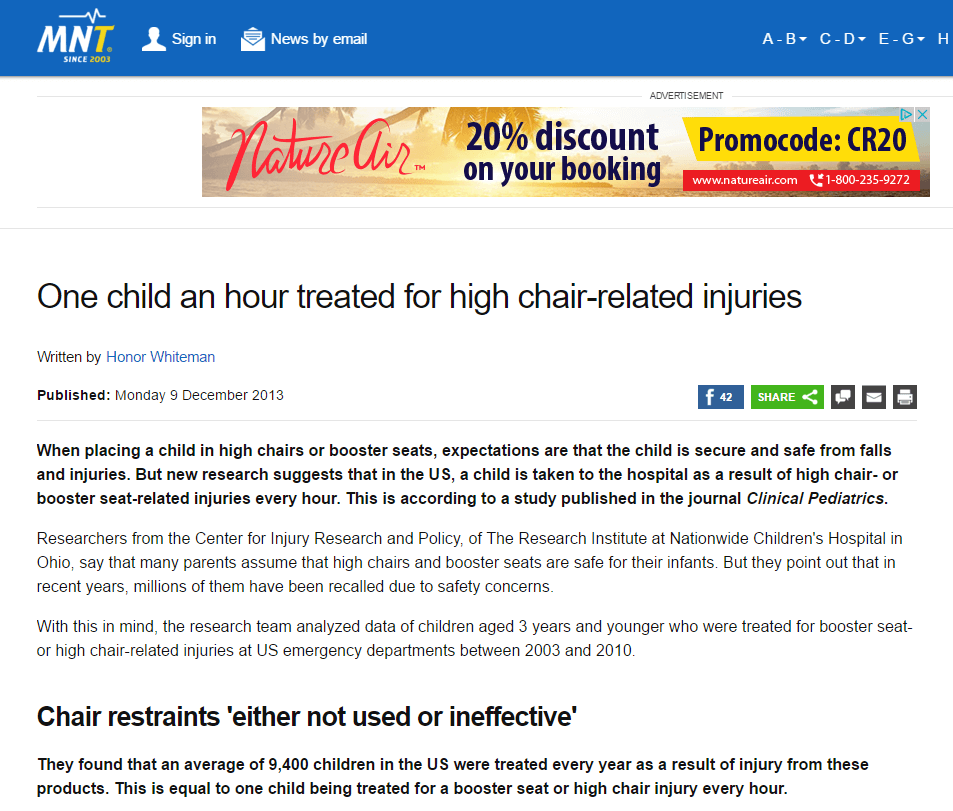Metrics blindness: Why it’s harming your link dev efforts
Do you make decisions based on metrics alone? Columnist Julie Joyce makes the case that this mindset can remove the critical human element from your marketing efforts.

With all the available metrics provided by the amazingly helpful SEO tools that we have today, it’s easy to get a quick read on potential link-building prospects.
However, you know you have a problem with metrics blindness when you do the following:
- You immediately pursue a link on a site based on its metrics.
- You immediately ignore the chance to obtain a link on a site based on its metrics.
I’m not naive enough to suggest that you completely ignore metrics or that they aren’t one of the quickest ways to get an idea of how “good” a site is. I am suggesting, however, that you use these numbers as a starting point only.
Numbers don’t always tell the full story
I touched on this in a recent article on this site:
Getting a link on a site with a Domain Authority of 60 is awesome, but that doesn’t mean that I want to see a link for my carpet client on a site about dietary supplements.
On the flip side, a brand-new site that discusses how we can make school lunches healthier would be a good fit for a client who specializes in advocacy for better food in school, even though the new site has no decent authority yet. See? You can’t rely solely on metrics.
Numbers are great, but they do not tell the full story.
That’s the important bit to me: Numbers do NOT tell the full story.
Are we getting better or worse about this?
I feel like we’re not really getting it yet, though. Most of my current clients do, which is good. However, many of my prospects don’t.
When I’m showing an example of how we’d evaluate and pursue a link, the most common responses are like these:
- “This page doesn’t have enough backlinks to it, and its Domain Authority is only 10.”
- “It’s only a PR 1 site.”
- “I’d rather go after links exclusively on sites with a Domain Authority of 50 and up.”
- “This site only has 230 linking domains, and I’d rather have one with at least 4,000.”
- “The Trust Flow on this one looks a bit low.”

Source: Wikimedia
Never mind the fact that the link is on a relevant site, on a relevant page that appears to rank well, and will add value to the content — all of which suggest it’s good for relevant traffic.
Now, sometimes I get a bit frustrated early on, and after having some of my ideas rejected, I’ll ask the prospect to give me some examples of what they deem “acceptable” links. Much of the time, their examples are pretty unrealistic (at least as targets for us), as they might be from the BBC or GQ.
At least half of the time, their examples have one major plus — great metrics — but they have very low relevance. A link on a page with low relevance wouldn’t have a high chance of generating any clicks, would it? Not in my opinion.
What’s wrong with authority metrics?
Of course, having more authority links to your site means better rankings and traffic. No one is silly enough to think that a website with a Domain Authority of 65 isn’t a very powerful one in many ways.
However, rankings are not all that matter. Traffic isn’t all that matters, either. What matters is relevant traffic that has the potential to convert.
For an example, let’s take a look at this site: https://www.medicalnewstoday.com/
This site has an impressive Domain Authority of 89/100, suggesting that it’s a trustworthy website that would make a valuable link target under the right circumstances. The site’s content is focused around medical news, so if I were working with a medical client, I’d be thrilled to get a link here.
However, let’s say I am working with an e-commerce client that sells office products, including chairs. Would I want a link on the following page from Medical News Today?
Again, I’m seeing good metrics for this page, with a Page Authority of 44/100. However, would you really want the word “chairs” on this page to link to an e-commerce page selling office chairs?
Maybe you would, because surely it would help with rankings… but would you expect to sell a chair from this link? I wouldn’t.
With more and more webmasters nofollowing links, we all need to make relevant and converting traffic more of a priority. Most people are finally understanding that relying on numbers alone means taking the human element out of the equation, and that’s rarely good for any of us.
Contributing authors are invited to create content for Search Engine Land and are chosen for their expertise and contribution to the search community. Our contributors work under the oversight of the editorial staff and contributions are checked for quality and relevance to our readers. The opinions they express are their own.
Related stories
New on Search Engine Land
